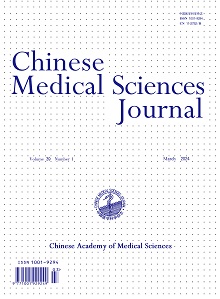About peer review
Peer review is a process of subjecting research methods and findings to
the scrutiny of other experts in the same field. It is one of the most
important means for editors to judge whether a manuscript submitted is
worthwhile to publish in a journal or not, and prevent dissemination of
irrelevant findings and unacceptable views. Chinese Medical Sciences Journal relies
on peer reviewers to provide clear, unbiased, timely, and respectful comments
to our authors and editorial team, in order to select manuscripts for the
journal with high quality and significant relevance. Our editors relay comments
to authors in a way that encourages them to improve their papers.
A constructive peer review
· helps authors improve the quality of their manuscripts and therefore the quality of the scientific record.
· helps editors decide whether or not to publish a submitted manuscript, and how the manuscripts may be improved.
· helps reviewers stay well informed in their areas of special interest, and fulfills a crucial role in the academic field.
Accept a peer review invitation
When
receiving a peer review invitation from our editor, please consider the following
issues before you decide whether or not to accept this invitation:
· Does the article match your area of expertise? Only accept if you feel you can provide a high quality review.
· Do you have potential conflicts of interests? Disclose this to the editor when you respond.
· Do you have time? Reviewing can be a time-consuming work. Before you commit, make sure you can meet the deadline.
As a peer reviewer, if you feel unable to provide a review due to conflicts of interests, scheduling problems, or that the review is outside your area of expertise, please let us know as soon as possible; if you decline the invitation and suggest an alternative reviewer, that will be very helpful for us to make an appropriate arrangement.
Perform a peer review
· Summarize the article in a short paragraph. This shows the editor that you have read and understood the manuscript.
· Giving your overall opinion and general observation of the article is essential.
· Be courteous and constructive, and not include any personal remarks or details such as your name.
· Explain and support your judgement so that both editors and authors are able to fully understand the reasoning behind your comments.
· If you suspect plagiarism or fraud, or have other ethical concerns, please raise your suspicion for the editor, and provide as much detail as possible.
· Provide insight into any deficiencies, and give specific comments and suggestions if necessary. The aspects may include but not be limited to language expression, title, abstract, method, figure and tables, statistical errors, problems in citation or references.
· State your main impressions of the article, including whether it is novel and interesting, whether it has a sufficient impact and adds to the knowledge base.
· Make a recommendation for publication from the following four categories:
-Accept for publication without revision
-Reject, explain the reason in report
-Accept with minor revision
-Re-evaluate after major revision (please indicate whether you would be available to review the revised article)




